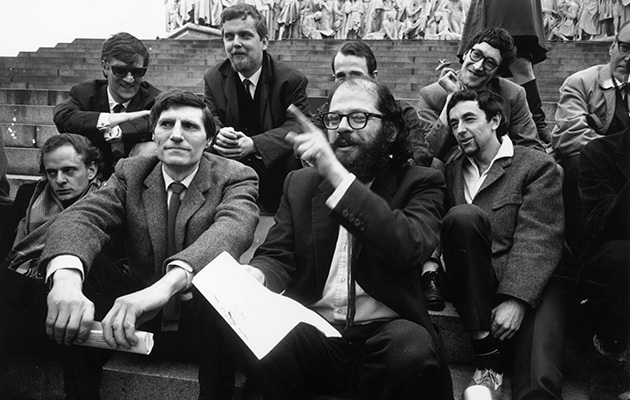Albert Hall was a watershed. Its impact is summarised by the writer Jeff Nuttall, who was supposed to run on stage dressed in blue body paint for a ‘happening’ but never received his cue from Trocchi. Nuttall wrote in his 1968 book Bomb Culture: “At the huge Albert Hall reading all our separate audiences came to one place at the same time, to witness an atmosphere of pot, impromptu solo acid dances, of incredible barbaric colour, of face and body painting, of flowers and flowers and flowers, of a common dreaminess in which all was permissive and benign… the Underground was suddenly there on the surface, in open ground with a following of thousands.”
One such beneficiary was Whitehead. “At the end, I staggered out like everybody else and thought, ‘What an extraordinary event!’ It was the event that started the counterculture because more people came out of the woodwork and had the confidence to do what they wanted. These people had been performing in front of 20 people and suddenly they were out there with 7,000. It’s true of me: ‘Wholly Communion’ cost £90, I had to steal the soundtrack from the BBC, but it went to the Mannheim Film Festival and won a gold medal and established me as an independent film maker.”
Richter saw the event as the birth of a movement that would change the world. “What we saw at the Albert Hall was a whole new generation. These people ended up being what we called the hippies, and it wasn’t like the beats, a literary thing, it was all encompassing. The first day I met Allen he was wearing a buttoned down Oxford shirt and tie – beats saw themselves as outsiders but still of a society, whereas the hippies threw it all out. The beats didn’t listen to Dylan, they listened to jazz, but the hippies listened to rock and roll and that changed everything.
‘That night we realised society was changing, this was a big deal, and we were right in the middle of it. From that point on we started having big gatherings, happenings, parties, events at the Roundhouse. It all got so much bigger and it gave us a new power, we could call the people together, do things and have events. London was different the next morning.”



